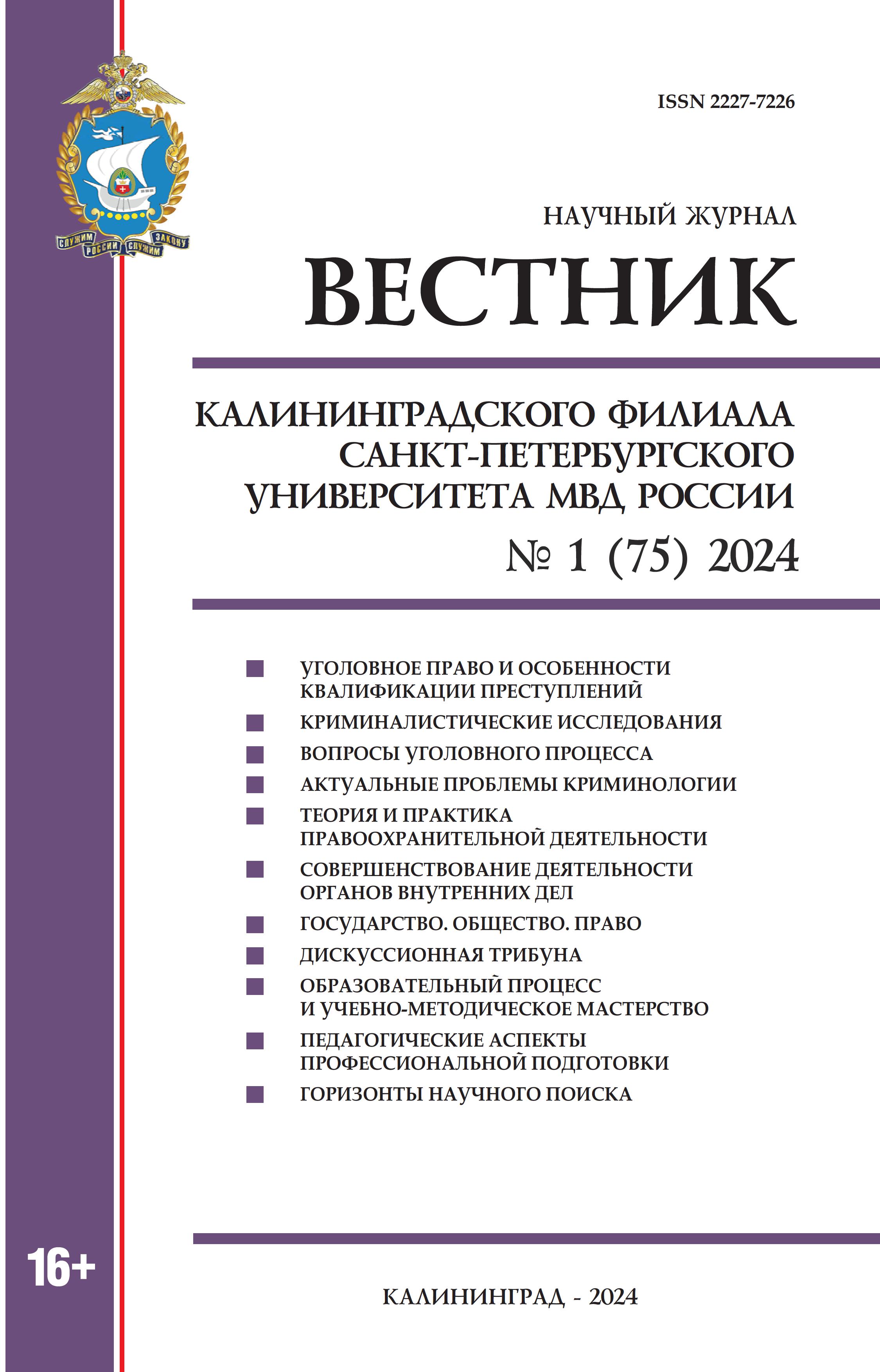from 01.01.2023 until now
Moscow, Moscow, Russian Federation
Introduction. Currently, there is active digitalization of almost all spheres of human activity. Criminal proceedings, in which various digital technologies are also being introduced, have not remained aloof from this process. In these circumstances, in particular, the criminal procedural form is subject to changes. The development of the concept of a digital criminal procedural form is due to the need to implement a criminal process that would correspond to the realities of modern digital society. As a result, the introduction of digital technologies in criminal proceedings is becoming one of the leading directions in the modernization of the criminal procedural form. At the same time, attention is drawn to the need to preserve generally recognized standards in the field of protecting the rights and legitimate interests of participants in criminal proceedings. The rapid development of digital technologies and their introduction into the criminal process, on the one hand, contributes to increasing the level of efficiency and effectiveness of crime investigations and criminal proceedings, and on the other hand, numerous risks entailing negative consequences. In the absence of scientific elaboration of the digital criminal procedural form, its features and meaning, it is impossible to fully substantiate the feasibility of introducing digital technologies into criminal proceedings. Methods. The methodological basis of the study was the provisions of materialist dialectics, the theory of knowledge and the general theory of criminal procedure. In addition, the author used general scientific and special scientific methods: analysis and synthesis, deduction and induction, scientific forecast, description, analogy, formal legal, comparative legal, historical, legal and statistical methods. Results. The article proposes the author's definition of the digital criminal procedural form and defines its specific features and meaning. It is concluded that digital technologies serve as a means of developing criminal proceedings, due to which the «classical» criminal procedural form is subject to change, increasingly corresponding to the objective needs of modern Russian society.
Criminal procedural form, criminal procedural activity, criminal procedural legal relations, criminal proceedings, digitalization, digital technologies, digital criminal procedural form, electronic legal proceedings, artificial intelligence technologies.







